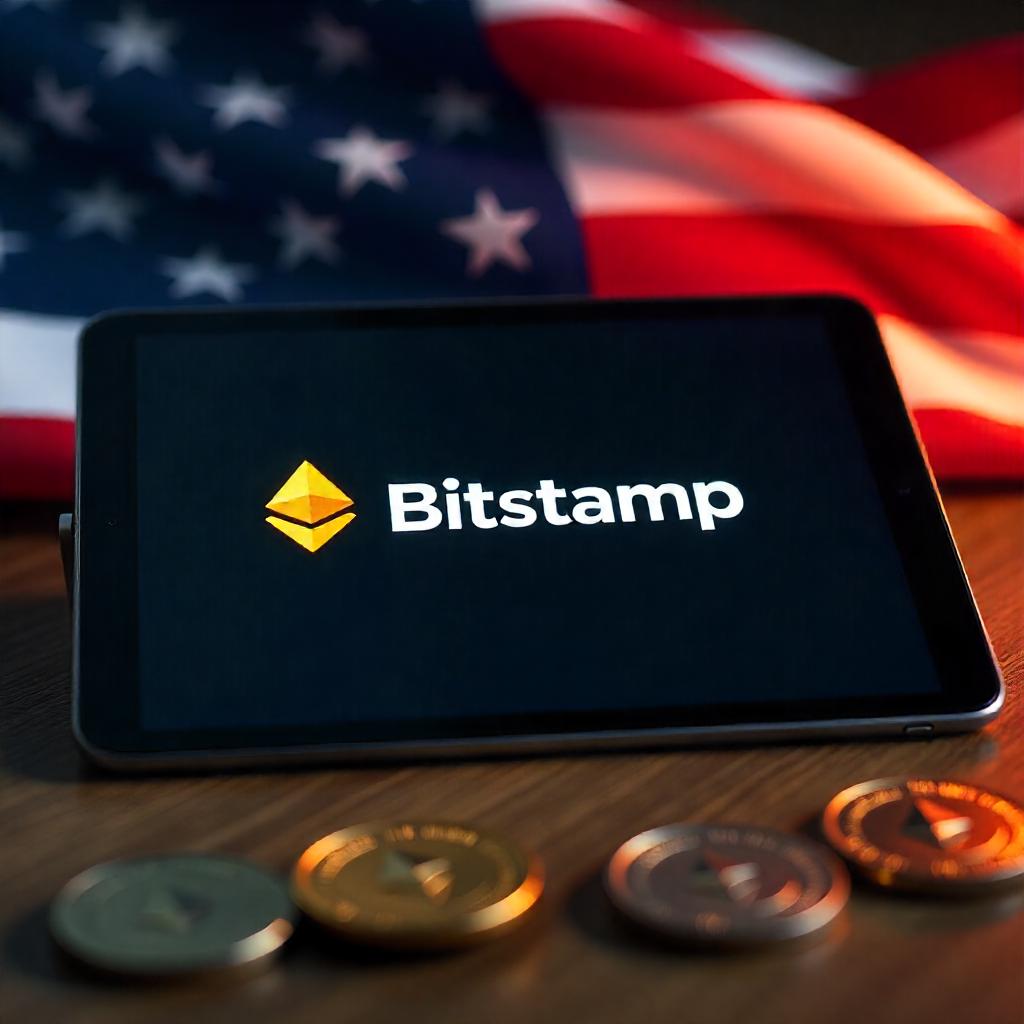Singapore’s Licensing Landscape under MAS
At the core of Singapore’s crypto regulation is the Payment Services Act 2019 (PSA). This legislation was introduced to consolidate and modernize the regulation of payment systems and payment service providers. It captures a wide range of services under a single framework, giving startups and established companies alike a clear path toward legitimacy.
There are two main types of licences under the PSA: Standard Payment Institution (SPI) and Major Payment Institution (MPI). The MPI licence—which Gemini has received in-principle approval for—is the higher tier and is designed for companies that exceed certain transaction thresholds. Specifically, a business is required to apply for an MPI licence if it processes more than SGD 3 million monthly in transactions for any single payment service or SGD 6 million for two or more services combined.
So, what services does the PSA actually cover? Here’s a quick overview:
- Account issuance
- Domestic and cross-border money transfers
- Merchant acquisition
- E-money issuance
- Digital payment token (DPT) services
- Money-changing services
For crypto-focused firms like Gemini, digital payment token services and cross-border transfers are the most relevant. In simpler terms, this means enabling users to buy, sell, hold, or transmit cryptocurrencies—such as Bitcoin or Ethereum—while remaining in full compliance with Singaporean law.
The MAS, Singapore’s central bank and financial regulator, plays a dual role: it fosters innovation and ensures stability. It has built a reputation globally for being progressive yet cautious. It doesn’t rush to approve licences, nor does it shy away from innovation. This approach is particularly appealing to serious crypto entrepreneurs. You get a regulatory environment that is clear and supportive, without sacrificing legitimacy or trust.
This licensing framework has already attracted several other major players in the space. Crypto.com, Circle, Paxos, Ripple, and Coinbase have all received either in-principle or full MPI approvals in Singapore. What this shows is that the MAS is open to regulated crypto activity—but only if it meets high standards for governance, compliance, and financial integrity.
The takeaway for entrepreneurs? Singapore isn’t the cheapest or fastest jurisdiction to get licensed in, but it offers one of the clearest and most respected regulatory pathways. If you plan to scale, raise capital, or win institutional clients, a MAS-regulated licence isn’t just a regulatory checkbox—it’s a strategic business asset.
What “In‑Principle Approval” Means
When you hear that Gemini has received an “In‑Principle Approval” (IPA) from the Monetary Authority of Singapore, don’t mistake it for a green light to operate at full scale just yet. This stage is often misunderstood—and if you’re a founder or fintech builder exploring Singapore, you need to know exactly what it does and doesn’t allow.
An In-Principle Approval is essentially a conditional approval. It means that MAS has reviewed the applicant’s business model, corporate structure, risk framework, and initial compliance documentation—and found them satisfactory enough to proceed. But it’s not a full licence. It’s a “Yes, but not yet.”
For Gemini, this IPA permits them to start preparing for live operations in Singapore under strict oversight while finalizing all required conditions. That could include things like:
- Demonstrating full local compliance infrastructure, including a Singapore-based Compliance Officer and governance setup
- Implementing robust AML/CFT systems tailored to Singapore’s risk profile
- Ensuring adequate cybersecurity and IT governance controls
- Appointing MAS-vetted directors and satisfying fit and proper criteria for key individuals
- Submitting an independent audit report confirming that internal processes meet regulatory expectations
This phase is both strategic and operational. From a strategic angle, Gemini’s IPA already serves as a trust signal—they’ve met MAS’s initial screening, which is no small feat. From an operational standpoint, they now have a limited window—usually several months—to tick every final requirement before receiving their full MPI licence.
Failing to complete any of these conditions within the prescribed time can result in the licence being revoked or delayed indefinitely. MAS is known to be measured but firm; they have previously declined to grant final licences to firms that didn’t meet expectations even after receiving an IPA.
The key thing to note here is that the IPA stage is a transitional period—not a shortcut. It allows businesses like Gemini to:
- Start limited onboarding of users (often in beta mode)
- Test systems and internal controls under MAS supervision
- Build their full operational presence in Singapore
For crypto-business founders watching closely, this is where you get a chance to mirror success. Understanding what Gemini had to show MAS—what policies, documents, leadership, capital strength, and technical readiness they had to present—can help you model your own licensing journey.
In sum, receiving an IPA in Singapore means you’ve passed the theoretical test. Now, it’s time to pass the practical exam—and earn the privilege to operate in one of the world’s most respected financial jurisdictions.
Gemini’s Requirements & Application Journey
To understand what it truly takes to get an in-principle licence from the Monetary Authority of Singapore (MAS), it helps to examine what Gemini had to build—and prove—before reaching this milestone. This isn’t just about checking boxes; it’s about aligning deeply with one of the world’s most demanding financial regulators. If you’re a crypto-business founder or fintech entrepreneur considering Singapore, Gemini’s path offers a roadmap packed with insights.
Establishing a Singapore Entity
Gemini had to incorporate a local entity: Gemini Digital Payments Pte. Ltd. MAS requires this so that the regulator has full jurisdiction over the licensed company’s operations. Foreign parent companies can’t simply “passport in” their services; they must build from the ground up within Singapore’s legal and governance boundaries.
Appointing Regional and Local Leadership
Gemini appointed Saad Ahmed as Head of Asia-Pacific—a strategic move that signaled commitment to regional operations. MAS expects a Singapore-based Director, a local Compliance Officer, and clear lines of local reporting. Each individual must also pass MAS’s “fit and proper” checks related to integrity and competence.
Building Risk & Compliance Frameworks
Gemini had to present strong AML/CFT policies, including KYC, transaction monitoring, escalation procedures, and internal audit frameworks. These were not theoretical documents—they had to reflect operational systems capable of managing real-world compliance.
Capital and Liquidity Assurance
While MAS doesn’t publish hard capital requirements, companies are expected to demonstrate adequate liquidity and risk reserves. Gemini likely submitted audited financials and proof of segregated customer fund policies. They needed to show that they could not only function today, but survive operational shocks.
Transparent Tech Infrastructure
Gemini had to demonstrate system security, IT governance, audit trails, business continuity, and wallet custody systems. These systems may have been subject to review by MAS or third-party auditors. It’s not enough to have tech that works; it must be defensible, documentable, and secure.
This journey isn’t easy—and it’s not meant to be. But for companies like Gemini, it’s worth it. MAS approval is more than a licence; it’s a stamp of operational excellence. For founders, understanding this path step-by-step can mean the difference between navigating the process or getting lost in it.
Process & Timeline
For founders aiming to launch in Singapore, understanding the licensing process and timeline is essential. Gemini’s journey offers a realistic benchmark for what to expect.
Pre-Application Preparation
Gemini had to prepare documentation, hire qualified personnel, and align tech systems before submitting its application. This phase includes entity setup, drafting policies, and preparing compliance infrastructure.
Licence Application Submission
Gemini likely filed their MPI application between May and August 2024. During this period, MAS began reviewing the application, issuing clarification requests and conducting detailed checks on business models, governance, and technical systems.
In-Principle Approval Granted
Gemini received its IPA on October 29, 2024. This allowed it to begin operational preparation while completing MAS’s post-approval conditions.
Post-IPA Implementation
From October to April, Gemini worked to meet MAS’s final conditions. These included staff onboarding, audit completion, IT infrastructure readiness, and user account migration. By April 2, 2025, Gemini successfully transitioned its Singapore customer base to the licensed entity.
Full Operational Launch
Once all conditions were met, Gemini received the full licence. For most startups, the full timeline from application to launch can take 9–15 months.
The MAS process is deliberate, collaborative, and expects accountability at every step. For startups, early preparation is the key to reducing friction and achieving sustainable, compliant growth in Singapore.
Cost Considerations
Securing a MAS MPI licence isn’t just a regulatory challenge—it’s a financial investment. Founders must budget for direct fees, infrastructure, compliance staffing, audits, and operational readiness.
Application Fees
MAS charges SGD 1,500 per service applied for, up to a maximum of SGD 8,000. Gemini’s application likely involved two services, putting their fee around SGD 3,000.
Security Deposit
MAS requires a security deposit of:
- SGD 100,000 for moderate transaction volumes
- SGD 200,000 for higher transaction flows
This deposit must be maintained at all times.
Compliance Staffing
A licensed MPI must employ:
- A full-time local Compliance Officer
- An AML/CFT officer
- Local directors
Salaries for these positions are significant. A skilled compliance lead can command SGD 120k–180k per year. Combined, compliance staffing costs can easily exceed SGD 400k–800k annually.
Legal and Consultancy Fees
External law firms and consultants can cost anywhere from SGD 50k to SGD 150k depending on complexity. These professionals guide policy development, systems audit, and communications with MAS.
Technology Infrastructure
MAS requires robust, auditable tech systems. Gemini had to ensure secure custody, API monitoring, audit logs, and automated risk controls. Firms often invest tens of thousands of dollars annually in KYC tools, SOC 2/ISO audits, and cybersecurity solutions.
Ongoing Reporting
Even after approval, costs continue—through monthly transaction reports, annual audits, and compliance updates. The regulatory relationship is continuous, and so are the associated costs.
For startups, the total first-year cost can easily exceed SGD 1 million. It’s a steep climb—but for those who reach the summit, the credibility and opportunity far outweigh the price.
Strategic Value for Crypto‑Fintech Startups
Going through the MAS licensing process isn’t just about checking a regulatory box. It’s about building a strong foundation for long-term business growth. Gemini’s pursuit of the Major Payment Institution licence is a case study in using regulation not as a constraint—but as a strategic asset.
Market Credibility and Institutional Trust
A MAS licence is a trust signal. It tells banks, investors, and customers that your business meets some of the highest regulatory standards in the world. For Gemini, this enhanced their ability to engage with institutional clients, offer services backed by credibility, and improve their standing in the global market.
Startups gain similar leverage. A MAS licence allows founders to open bank accounts with greater ease, attract higher-value partnerships, and raise capital from investors who prioritize risk management and compliance. In crypto, where reputational risk is still high, trust is currency.
Scalability Without Limits
With an MPI licence, companies are no longer bound by the SGD 3 million/month cap on payment transactions. This means they can scale services confidently, serve enterprise customers, and handle cross-border flows without regulatory bottlenecks.
Gemini’s licence gives them the freedom to grow in Singapore without transactional constraints. For other crypto businesses, this opens the door to expanding product offerings, onboarding larger clients, and increasing revenue without constant licence upgrades or scope revisions.
APAC Expansion Gateway
Singapore isn’t just a local hub—it’s a launchpad for Asia-Pacific. With diplomatic ties, trade agreements, and deep financial integration with countries like Indonesia, Malaysia, Vietnam, and Australia, companies based in Singapore can scale regionally with fewer frictions.
By obtaining a MAS licence, Gemini signaled its long-term commitment to Asia. For startups, this strategy enables regional product testing, smoother cross-border partnerships, and access to an incredibly diverse consumer base. Singapore becomes your safe harbour in a volatile market.
Global Interoperability
Singapore’s regulatory standards are globally respected. Aligning with MAS means aligning with FATF standards, MiCA expectations, and principles recognized in most jurisdictions. A MAS-licensed company is likely to have a smoother experience when applying for licences in the UK, Europe, or the UAE.
Gemini now operates in multiple jurisdictions—what MAS expects overlaps significantly with the requirements of the FCA, NYDFS, and others. Founders can use the MAS approval as a springboard for global regulatory interoperability.
Investor Confidence and Fundraising
Regulation directly impacts your valuation. Companies with real licences raise capital more easily, command higher valuations, and access strategic capital—not just speculative money. The MAS licence acts as a de-risking factor during due diligence.
When Gemini received its IPA, it was seen as a serious sign of maturity in the APAC market. The same applies to founders who want to use Singapore as a credibility anchor. You’ll find more doors opening when your compliance credentials are unimpeachable.
Key Risks & Pitfalls to Avoid
Even with all its benefits, the MAS licence process is filled with traps. Avoiding these pitfalls is crucial for founders who want to succeed.
Confusing IPA with a Full Licence
An in-principle approval is conditional. It shows MAS sees promise in your business, but full licensing only comes after you meet final requirements. Many applicants relax after receiving IPA and then miss deadlines—leading to application withdrawals.
Applying for the Wrong Scope
MPI licences don’t permit everything. Services like retail trading, derivatives, or staking may require additional permissions or be out of scope altogether. Misalignment between your product and your licence type can lead to compliance issues.
Underinvesting in Local Talent
MAS wants to see real presence—not remote directors or virtual compliance teams. Many founders try to manage Singapore operations from abroad and hit friction quickly. Local leadership, especially in compliance, is non-negotiable.
Technology That Fails Scrutiny
MAS inspects technical architecture closely. Gemini had to show secure wallets, penetration testing, IT audit trails, and more. Startups without documentable, resilient systems will struggle in technical due diligence.
Neglecting Post-Licence Compliance
Once licensed, the compliance work doesn’t end—it begins. From transaction monitoring to audit filings and regulatory inspections, MAS keeps a close eye on licensees. Startups must continue investing in systems and people long after going live.
Comparative Jurisdictional View: MAS vs Global Licensing
Singapore (MAS – MPI Licence)
Time to approval: 6–12 months
Capital: SGD 100k–200k deposit
Retail inclusion: Limited
Best for: Institutional offerings, APAC strategy, scalable compliance
New York (BitLicense)
Time to approval: 12–24 months
Capital: Often exceeds USD 1 million
Retail inclusion: Yes
Best for: U.S.-focused retail operations, high compliance capacity
UK (FCA Cryptoasset Registration/EMI)
Time to approval: 6–18 months
Capital: EUR 350k+
Retail inclusion: Yes
Best for: UK/EU markets, stablecoin issuers, digital banks
MAS offers a middle ground—more scalable than the FCA, less bureaucratic than NYDFS, and far more credible than offshore options. For founders eyeing global scale, Singapore is a smart starting point.
Actionable Roadmap
Incorporate a Singapore entity
Register a private limited company with a local director and address.
Hire key personnel
Employ a Compliance Officer, AML lead, and Singapore-based governance staff.
Prepare documentation
Draft policies for AML, cybersecurity, operations, and financial reporting.
Secure capital
Meet deposit and capital adequacy expectations with proof of liquidity.
Submit application to MAS
Submit forms and supporting documents with fees via MAS’s application portal.
Receive and complete IPA requirements
Hire, audit, test systems, and fulfill final steps within the prescribed timeline.
Operational launch
Receive full licence and begin live operations. Continue compliance reporting and regulatory engagement.
Singapore Is a Launchpad, Not a Shortcut
Gemini’s in-principle approval from MAS isn’t just a win for the company—it’s a signal to the industry. Singapore is open for crypto business—but only for those who take regulation seriously.
The MAS licensing process is not fast. It’s not cheap. And it certainly isn’t easy. But it forces companies to build the right foundations: strong leadership, resilient systems, transparent governance, and operational discipline.
In a sector too often defined by shortcuts and hype, this model stands out.
For founders who want to build something real, something lasting, something trusted—there’s no better place to begin than Singapore. Because in the future of crypto, compliance isn’t the enemy of innovation.
It’s the foundation of it.





